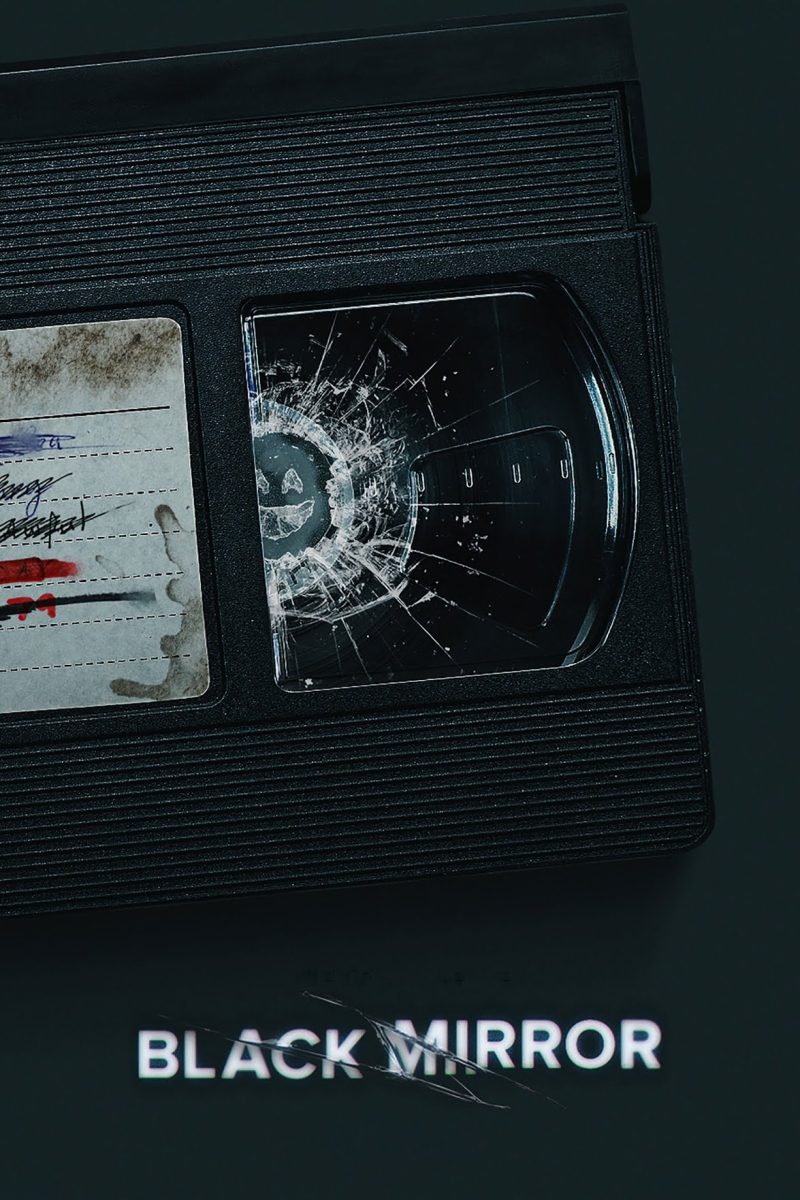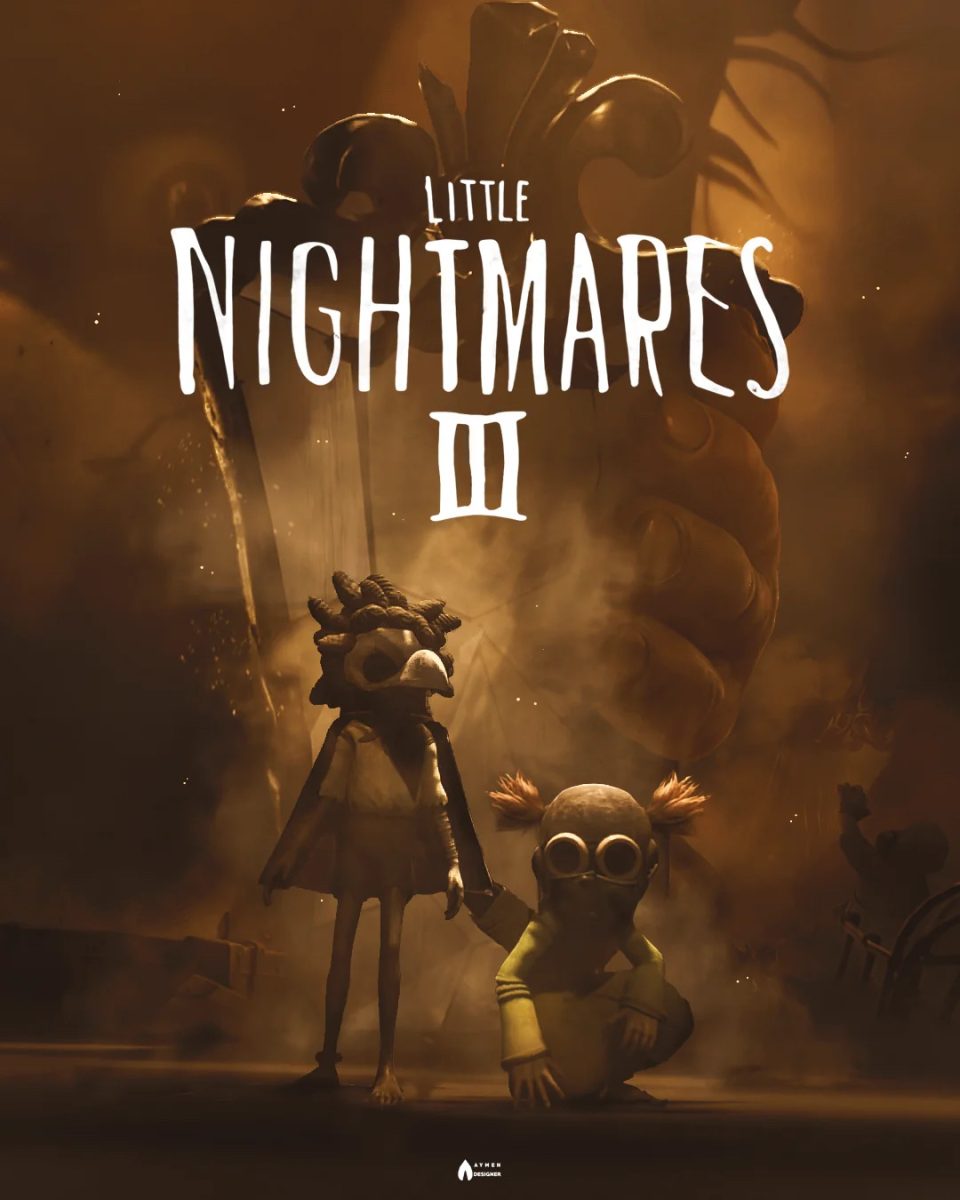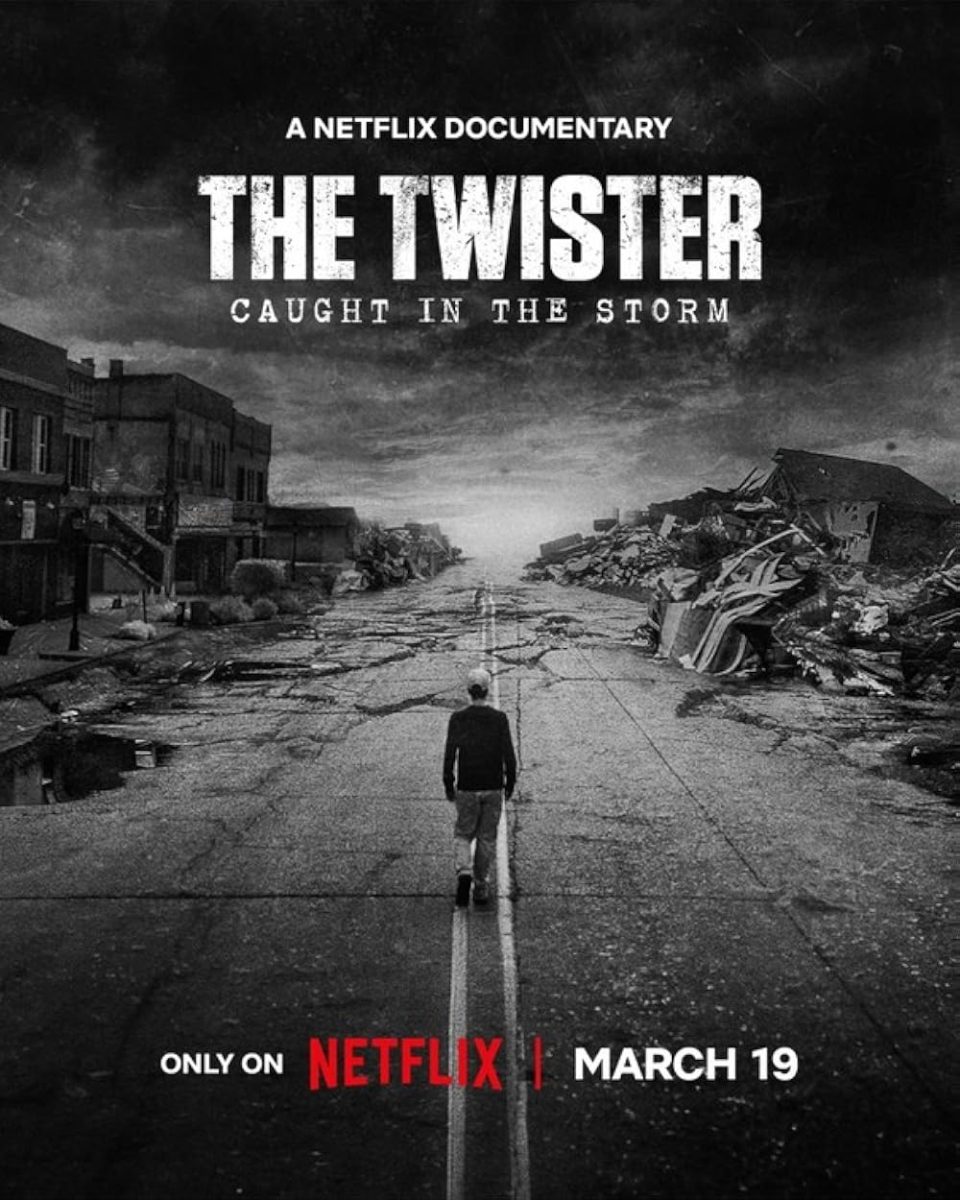In a dystopian world of crazy technological advancements and governments corrupt beyond repair, we see just how humanity’s darkest impulses and greatest creations collide to form a reality just years from our own.
Netflix’s top-rated cult anthology series, “Black Mirror,” returned for a sixth season in June of 2023, this time, adding to the ongoing mysteries of the saga with even more precision.
After five previous seasons of pure unsettlement and psychological fear, you’d think the episodes couldn’t get any stranger. However, the first of the sixth season, “Joan is Awful” simply eases audiences into the mind-altering episodes that the series has in store.
“Joan is awful” begins with our main character of the episode, Joan Tait, played by Annie Murphy. We follow along through her monotonous life as she navigates a vicious work environment and attempts to put up with her ever-so-dull fiance, Krish (Avi Nash) while still fantasizing about her passionate ex-boyfriend, Mac (Rob Delaney). After a long day of poor decisions and drama, Joan returns home to discover a new Streamberry series titled “Joan is Awful,” portraying a full-length episode of her life with uncanny accuracy through CGI. Joan quickly finds her reputation deteriorating, along with her sense of privacy and independence.
This episode in particular really displayed the various layers there are to our society’s emerging technology, showing how easily our involvement with it can be used against us. It also conveys just how much of an illusion our privacy is in a high-tech world such as our own. I found this episode to be one of my favorites, mostly due to the comedic factors that they incorporated into the storyline, that of which we don’t see too often in the “Black Mirror” universe. Yet, I also enjoyed the major plot alterations within the last 20 minutes of the episode as everything begins to unravel and audiences discover the truth about Joan.
Diving into the more true-crime segment of the season, Episode 2, “Loch Henry” shows young filmmaker Davis (Samuel Blenkin) and his girlfriend, Pia (Myha’la Herrold) along with their trip to Davis’s hometown in Scotland in hopes of filming and publishing a meaningful nature documentary. Plans soon change as Pia discovers a local lore behind a series of vile murders that occurred in a nearby cottage, therefore, striking up the idea of making an unseen murder documentary instead. Little did the young couple know that the making of this film would uncover secrets that bring them dangerously close to the crimes themselves.
Although this episode wasn’t tech-centric and futuristic like all the others seem to be, it was the modernity of the storyline that made it a true masterpiece. “Loch Henry” doesn’t have an easy-to-interpret message behind it, but just like the rest of the series, it’s still there. More specifically, the episode focuses directly on the criticization of today’s storytelling when it comes to true crime cases. The episode as a whole highlights how there’s no respect for victims in films revolving true crime, and producers only aim to entertain, not inform. I immediately found a love for this episode, and it remained my favorite throughout the entire season.
Set in an alternate 1960’s space race, Episode 3, “Beyond the Sea” traces the complex lives of two astronauts, Cliff Stanfield (Aaron Paul) and David Ross (Josh Hartnett). Except, their lives are slightly different than that of an ordinary astronaut; the nature of their mission is a bit unusual. While floating off into depths of space, these two astronauts have the ability to transfer their consciousness into machine-automated versions of themselves back on Earth. This makes it possible for them to see their families and live out their lives until it’s time for them to return to their bodies, hurtling through the cosmos. This way of work quickly became efficient for them, usually only seeing each other during weekly maintenance checks. That was until the death of David’s family back on earth took a toll on both of their personal lives.
This episode definitely broke the norm for the “Black Mirror” series. Particularly, I liked how the ending contained less of a plot twist like the other episodes and more of an inevitable conclusion to the events leading up to it. The tragedy of loss, as well as the consequences of betrayal, played a major role in the storytelling of this specific episode. Each and every choice that was made contributed to the inescapable trauma both David and Cliff underwent in the end, which is what truly made it so intriguing. As a whole, the progression of Episode 3 shows how quickly two formerly adept astronauts ruined each other lives and lost their place in the universe, making their existence as empty as the cosmic space in which they are now eternally engulfed by.
Episode 4 takes a more supernatural approach; one of the first supernatural-type episodes we’ve seen in the series. “Mazey Day” introduces us to a young member of the paparazzi, Bo (Zazie Beetz), and her struggles with remorse revolving around her job as a photographer. This storyline also follows troubled actress, Mazey Day (Clara Rugaard), and her journey dodging the paparazzi while being haunted by the consequences of a deadly hit-and-run. As the community begins the hunt for Mazey, Bo, accompanied by two other members of the paparazzi, track down her whereabouts and unknowingly discover the sinister truth behind the strange disappearance of Mazey Day.
This episode, in my opinion, was without a doubt the strangest, but also possibly the worst of the season. The extreme fast-paced, unrealistic feel to the entirety of the episode made it much less of an interesting watch compared to the others. It definitely succeeded in the gore department and incorporated intriguing visual factors, however, the plot was a bit tacky and didn’t really flow with the rest of the season. Despite the ending being a bit of an unconventional climax, it was overall a great way to show how the modern-day paparazzi dehumanize celebrities and strip them of their self-worth.
In a much more strange scenario, the season finale, “Demon 79” displays the story of Nida (Anjana Vasan), a sales associate in 1979 Northern England, and how she mistakenly summons a demon after discovering an old talisman at her place of work. Having numerous thoughts of homicide previously, Nida’s newly-found, enthusiastic demon, Gaap (Paapa Essiedu), tells her she needs to complete three murders before May Day or else the world will suffer a fiery, nuclear end.
“Demon 79” had a way of making audiences question the reality of the episode as a whole. Throughout the entirety of the hour and fourteen-minute watch, all there really was to think about was whether everything was happening within Nida’s imagination or not. I particularly enjoyed the use of satirical characters and events that developed through the storyline.
In the end, “Black Mirror” continued to deliver the thought-provoking, dystopian-centered stories the series is so well known for through season 6 and truly lived up to its name. I was however a bit disappointed in the minority of episodes they included after a four-year wait, as well as how some episodes drifted away from the main idea of the series. Nevertheless, each of the 5 episodes offered a unique take on the impact of modern technology and left viewers to question the near future as we know it, making it an all-time favorite show of mine.
4/5








